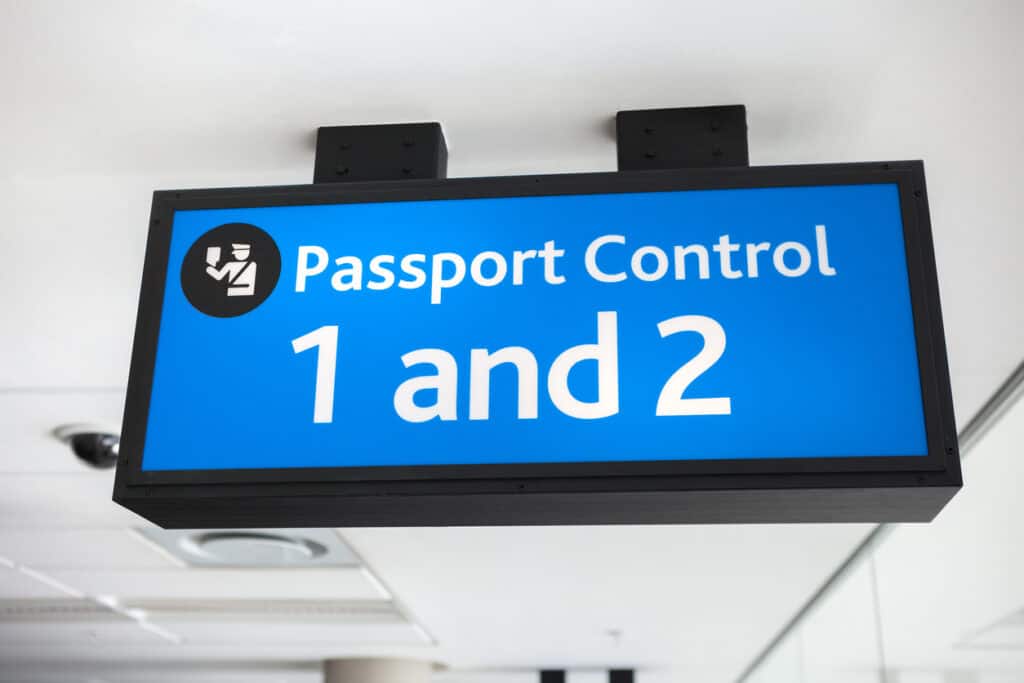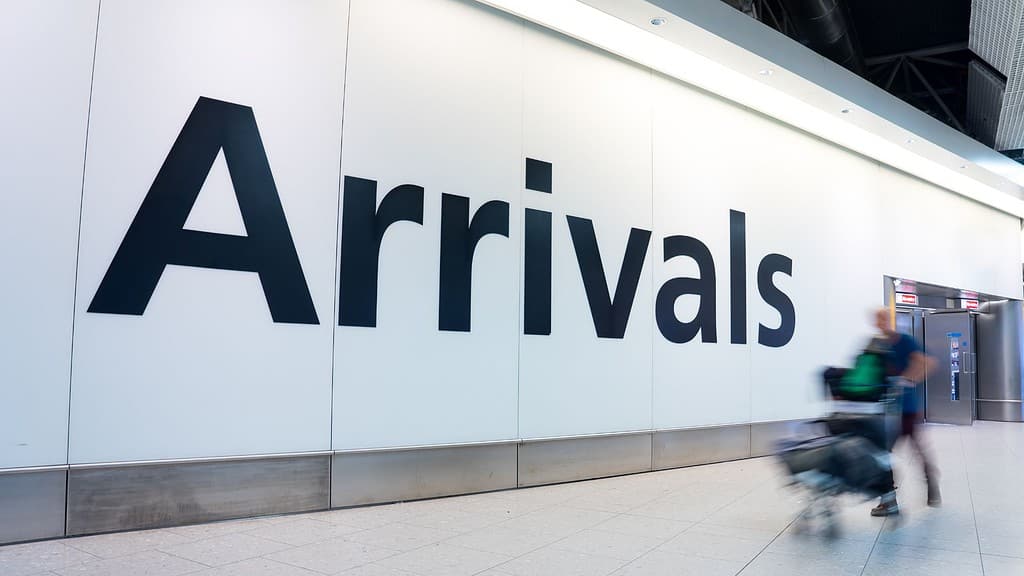CaSE has published a new policy report setting out what science and engineering needs from the immigration system and making a series of recommendations for government action in the short term, the Brexit negotiations and beyond.
CaSE policy review on Immigration 2018
14 Mar 2018
The UK has benefitted from free movement of scientists and engineers across the EU and recruitment from beyond the EU. Now, the government must take the opportunity to create an immigration system that allows science and engineering to thrive.
The UK must rebuild its reputation internationally as a nation open for business and welcoming to scientists and engineers from around the world. The immigration system must be an asset to the UK, supporting organisations’ productivity and helping the UK to compete for globally-mobile international talent.
The briefing makes two headline recommendations for Government:
1. Rebuild confidence in the short term
Amend current visa rules
- Abolish the Tier 2 (General) cap
Businesses need a predictable immigration system. The Tier 2 cap increases uncertainty. In 2017-18 due to the cap being reached, hundreds of business-critical roles are going unfilled, damaging productivity. These rejections send a damaging message that the UK is not open to the ‘brightest and best’ across the world. All the while, the UK public support immigration of skilled workers, and scientists and engineers in particular. In the short term, roles on the Shortage Occupation List should be exempt from the Tier 2 cap and no such arbitrary cap on skilled workers should be implemented in any new system.
- Permit research activity overseas in Indefinite Leave to Remain rules
Some UK-based research projects require long periods overseas. Further, the Government is promoting international research collaboration and international development through science, for instance through the Newton fund. Rules preventing researchers wishing to obtain Indefinite Leave to Remain (ILR) in the UK from spending more than 180 days overseas in any 12-month period in the course of their work could undermine the success of these initiatives and fails to take into account the nature of our sector.
One researcher refused ILR on this basis said, as tropical ecologists “our research is strongly field data-driven, this job required me to spend >50% of my first two years leading field work and building research collaborations in SE Asia… I have the expertise to contribute to UK science and see a good academic career future here…yet have been denied the right to settle”. This could be easily resolved by amending ILR rules to permit research activity overseas.
Improve immigration messaging
- Promote the UK as a place to learn, earn and contribute, working to combat the unwelcoming environment towards migrants
Government migration net targets, migration caps and extensive costs associated with migration serve to tarnish the attractiveness of the UK as a go-to nation. A family of four moving to the UK from outside the EU face paying over £10,000 in fees, while risking rejection from the UK because of indiscriminate numerical caps. Government must work across departments to promote the UK as a global research and innovation hub through trade missions, international strategy, Brexit negotiating positions and ministerial speeches.
Provide confidence in Brexit transition
- Maintain current migration rules for EEA nationals throughout a transition period
Major change in immigration systems is always disruptive and expensive. Our members are clear that immigration rules should only change once following a Brexit transition period, allowing reasonable lead-in time accompanied by clear guidance and support to employers and individuals. Early confirmation from the UK Government that they will maintain current migration rules and rights throughout transition and until a new system can be effectively delivered would provide much needed certainty and confidence for employers and individuals.
2. Create a streamlined system in the long term
An immigration system that supports research and innovation
A streamlined immigration system encompassing the types of people and types of movement required to support UK science and engineering
Operating and navigating two migration systems would likely increase cost and complexity for government, employers and individuals. However, there is strong agreement that a single system with the level of burden and bureaucracy of the current non-EEA system would pose significant problems to research and innovation organisations and should not be expanded to cover all migration. A future streamlined system should retain the ease of movement currently afforded to scientists and engineers from the EEA, while reducing barriers to movement for scientists and engineers from outside the EEA.
A future immigration system must support the retention, access and movement of those who lead, undertake and support research and innovation including:
- Highly skilled people – e.g. researchers, engineers, academics, business founders (characteristics include PhD level roles, Chartered Engineer status)
- Specialist technicians – e.g. data analysts, cell culture specialists, AI experts
- Students – including undergraduate, postgraduate taught and PhD students
- Dependants of these individuals
Research and innovation requires mobility for excellence, skills, education and collaboration. To support science and innovation in all its settings, an immigration system should support the following types of movement:
Long-term migration
- Recruitment to advertised posts – initiated by the employer – The strongest candidate is selected, irrespective of nationality
- Relocation of research and innovation talent to the UK – initiated by the individual e.g. named holders of research grants or recognised fellowships, investors, business founders, those with skills in short supply
Temporary migration after which the individual will leave the UK
- Short visits (up to 6 months) e.g. visit a collaborator, give a lecture, sit on an interview panel
- Temporary work (up to 2 years) e.g. secondments, placements, training, co-location for collaboration, use of a UK-based facility, staff exchange, addressing an urgent research issue (e.g. disease outbreak)
- Intracompany transfers
- Formal study in approved education establishments with options for remaining in the UK
A streamlined immigration that works for science and engineering should also:
Support frictionless movement of science and engineering professionals
- Design visa-less options for visits, training and work, which could also form part of trade deals and research agreements
- Allow trusted employers to certify visits for low-risk researchers
Ensure system rules are proportionate to risk, benefit and labour market demands
- Ensure the system is flexible to meet the UK’s skills needs and research priorities, avoiding arbitrary numerical caps on skilled migrants
- Provide reasonable opportunity to switch between visa routes in-country
Be founded on robust evidence
- Report annually on migration flows and the economic contribution of migration to inform policy and public debate
- Maintain the employer skills survey and use findings to inform immigration policy
Be fit for the future
- Create a user-friendly online interface for the migration system drawing on UK design and technological expertise
- Improve processes and increase policy options by developing world-leading passport, visa and security technologies.
To coincide with the launch of this briefing, CaSE published a cross-sector letter to the Prime Minister, calling on the government to exempt roles on the Shortage Occupation List and PhD level roles from the Tier 2 visa cap.

CaSE Policy Review on Immigration 2018
DownloadRelated resources

A week on from the publication, Policy Manager Camilla d’Angelo takes a look at some of the questions that remain to be resolved and what to expect next for the Immigration White Paper.

Policy Manager Camilla d’Angelo takes a look at what the Immigration White Paper means for attracting international R&D talent to the UK.

In advance of the forthcoming Immigration White Paper, CaSE and 35 other organisations have written to select Westminster Parliamentarians.

This briefing summarises attitudes to immigration, international students and researchers, and their impact on UK R&D. It is based on evidence from a nationally representative survey of 4,100 UK adults in June 2024 and two focus groups in December 2024.